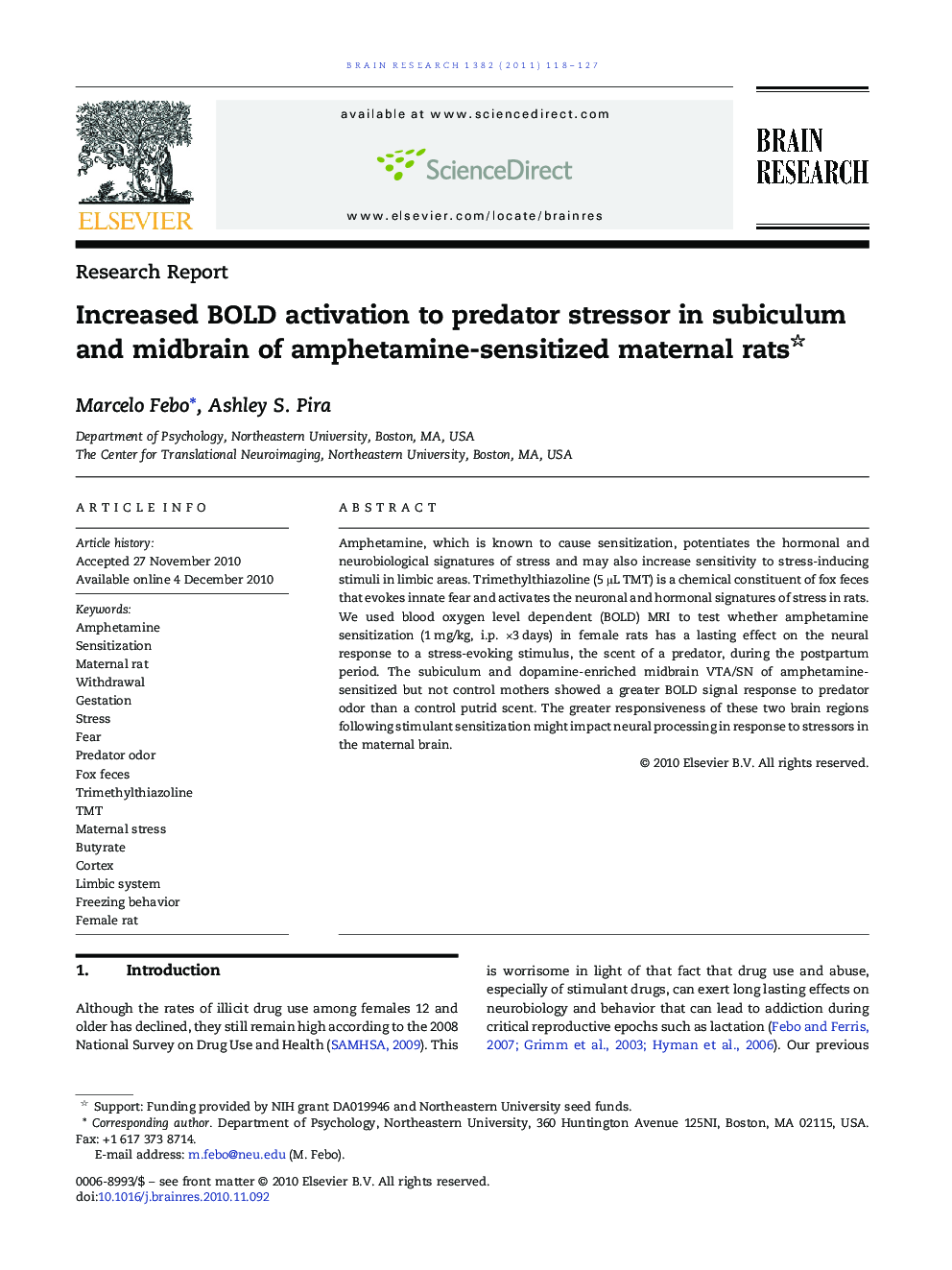| Article ID | Journal | Published Year | Pages | File Type |
|---|---|---|---|---|
| 6265071 | Brain Research | 2011 | 10 Pages |
Amphetamine, which is known to cause sensitization, potentiates the hormonal and neurobiological signatures of stress and may also increase sensitivity to stress-inducing stimuli in limbic areas. Trimethylthiazoline (5 μL TMT) is a chemical constituent of fox feces that evokes innate fear and activates the neuronal and hormonal signatures of stress in rats. We used blood oxygen level dependent (BOLD) MRI to test whether amphetamine sensitization (1 mg/kg, i.p. Ã3 days) in female rats has a lasting effect on the neural response to a stress-evoking stimulus, the scent of a predator, during the postpartum period. The subiculum and dopamine-enriched midbrain VTA/SN of amphetamine-sensitized but not control mothers showed a greater BOLD signal response to predator odor than a control putrid scent. The greater responsiveness of these two brain regions following stimulant sensitization might impact neural processing in response to stressors in the maternal brain.
Research HighlightsâºfMRI was used to investigate the maternal rat brains response to predator scent. âºComparisons were made between control and amphetamine sensitized rats, âºThe subiculum and midbrain show greater neural activity in amphetamine rats.
